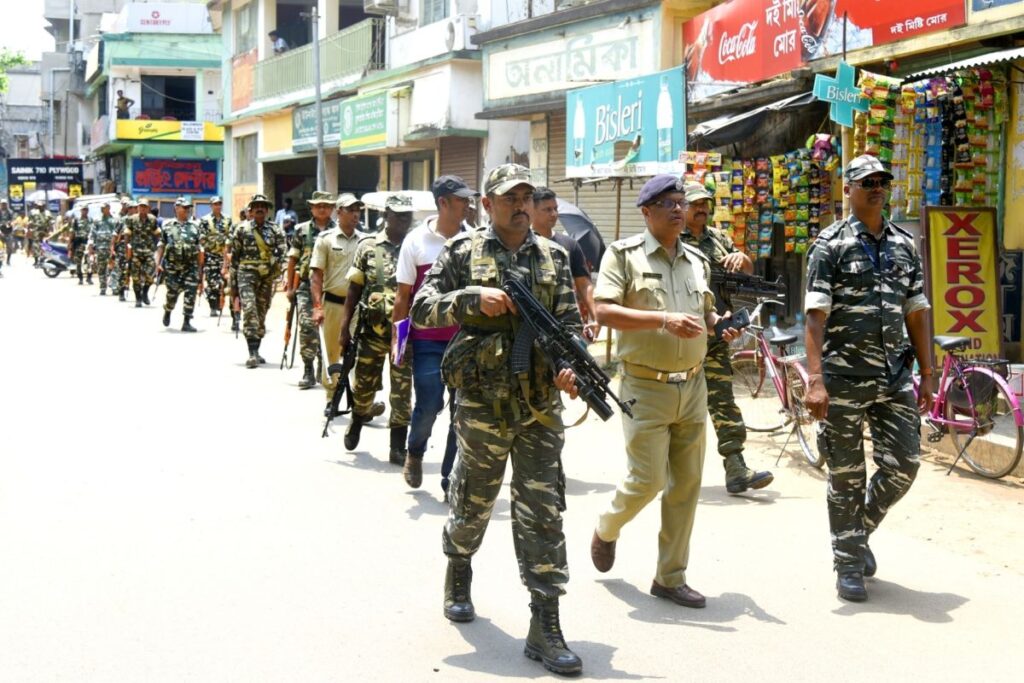Tribal bodies in Manipur have advised residents to refrain from traveling outside the Kuki-Zo areas from September 26 to 29, citing concerns over safety and communal tensions in the region. This decision comes in the wake of ongoing strife in Manipur, which has seen ethnic conflicts and unrest that have deeply affected various communities. The directive aims to ensure the safety and security of individuals amidst a volatile situation.
Background of the Situation
Manipur has been grappling with ethnic tensions for several months, primarily involving the Kuki and Meitei communities. These tensions escalated in May 2023, leading to widespread violence, displacement, and loss of life. The conflict has raised alarms about the stability of the region and the safety of its inhabitants, prompting various tribal organizations to take a proactive stance in addressing these issues.
The Kuki-Zo tribal bodies, representing a significant segment of the population, have been vocal in advocating for the rights and safety of their communities. They have raised concerns about the potential for violence and communal clashes, particularly during sensitive periods. The decision to restrict travel outside Kuki-Zo areas during the specified dates reflects their commitment to protecting their community members from potential harm.
Reasons for the Travel Advisory
The advisory not to travel outside Kuki-Zo areas is rooted in several factors:
- Safety Concerns: The primary reason for the travel ban is the potential for violence and hostility in regions outside Kuki-Zo areas. Previous incidents of unrest have demonstrated the volatility of the situation, making it imperative for residents to prioritize their safety.
- Heightened Tensions: Recent developments, including protests, blockades, and clashes between different communities, have heightened tensions in Manipur. The Kuki-Zo bodies believe that limiting movement during this period can mitigate the risk of confrontations and protect vulnerable individuals.
- Community Solidarity: By urging people to remain within their designated areas, tribal bodies aim to foster a sense of unity and solidarity among the Kuki-Zo community. This collective approach can enhance safety and ensure that individuals are not isolated during a time of uncertainty.
- Monitoring the Situation: The advisory also reflects a desire to monitor the evolving situation in Manipur closely. By restricting movement, tribal leaders can better assess the environment and respond accordingly to any emerging threats.
Community Response and Implications
The response to the travel advisory has been mixed. While many within the Kuki-Zo community understand the rationale behind the decision, others express concerns about the impact on daily life and economic activities. Manipur is known for its diverse culture, trade, and economic interactions among various ethnic groups. A restriction on movement can hinder commerce and affect livelihoods.
Community leaders emphasize that the travel advisory is not meant to instill fear but rather to prioritize safety. They urge residents to remain vigilant, communicate effectively, and report any suspicious activities. In a time of unrest, fostering a strong network of communication within the community is crucial to ensuring collective safety.
Broader Implications for Manipur
The travel advisory issued by the Kuki-Zo tribal bodies highlights the broader implications of the ongoing conflict in Manipur. The situation underscores the need for dialogue, reconciliation, and sustainable solutions to address the root causes of ethnic tensions.
Government intervention and engagement with community leaders are essential in facilitating peace-building efforts. Addressing grievances, fostering inter-community dialogue, and implementing measures to ensure justice and equality are critical for restoring stability in the region.
Moving Forward
As Manipur navigates these tumultuous times, the travel advisory serves as a reminder of the challenges facing the state. It is essential for all stakeholders, including the government, civil society, and community organizations, to work collaboratively to foster peace and security.
Efforts to promote understanding and coexistence among different communities will be pivotal in breaking the cycle of violence and mistrust. Initiatives aimed at building bridges between the Kuki and Meitei communities can contribute to a more inclusive society, where diversity is celebrated rather than a source of conflict.
The call from Manipur’s tribal bodies for residents to refrain from traveling outside Kuki-Zo areas from September 26 to 29 reflects a commitment to safeguarding the community during a challenging period. While the decision is rooted in safety concerns, it also highlights the pressing need for dialogue, reconciliation, and proactive measures to address the ongoing tensions in Manipur. As the situation evolves, the collective resilience and solidarity of communities will play a vital role in navigating the challenges ahead and working towards a peaceful coexistence.

